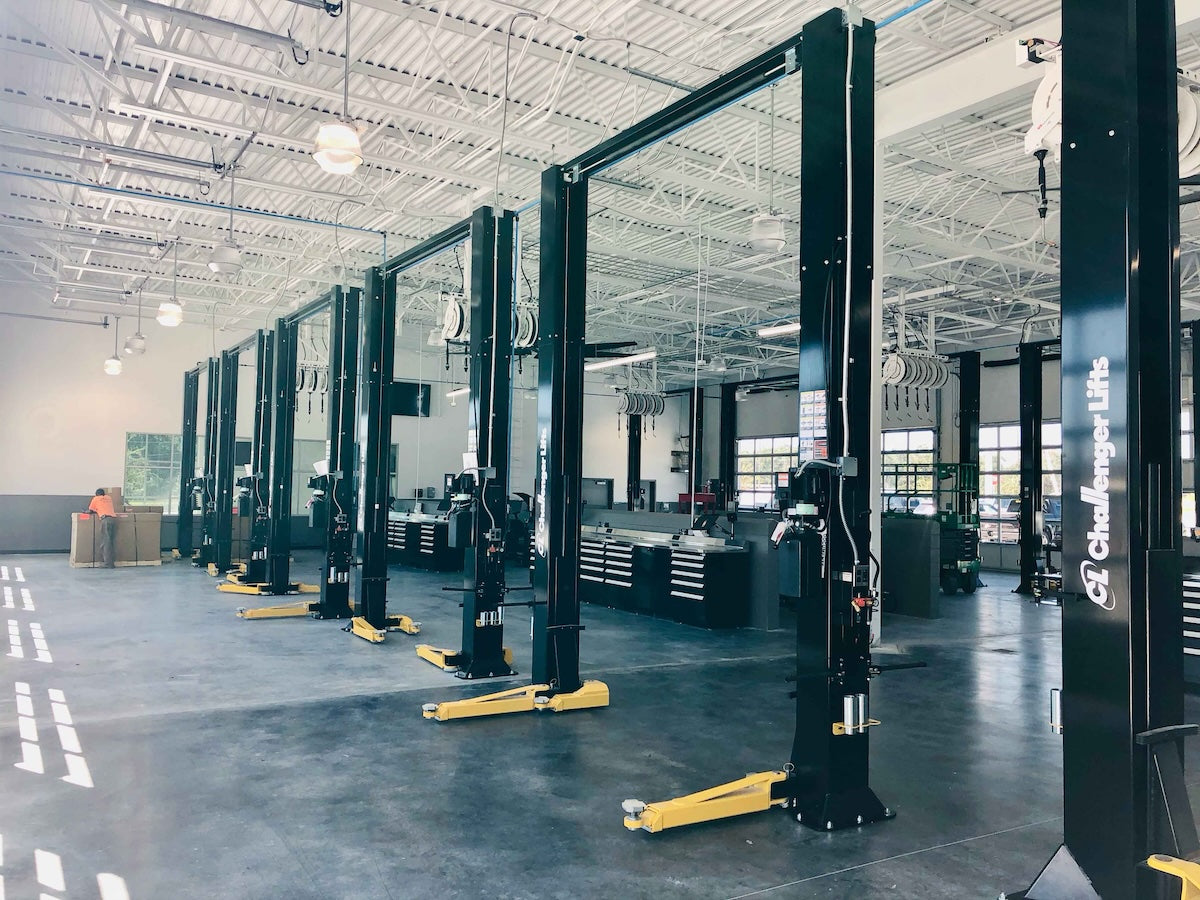Text ( 407) 288- 8353

How to Buy a Car Lift or Truck Lift
Safety is the most important consideration when buying a new car lift or truck lift, regardless of whether the lift will be installed in a professional shop or home garage. Be a smart lift buyer and follow these six steps the next time you need a lift.
- Choose the right lift for your garage. Consider lift capacity, clearance, foundation requirements and whether the lift can properly access manufacturer-recommending lifting points on the vehicles you service.
- Review local building code regulations. The International Building Code, which is in use or adopted by all 50 U.S. states, requires that any vehicle lifts installed in its jurisdiction meet the safety standard ANSI/ALI ALCTV (current edition).
- Confirm the lift is ALI Certified. Look for the ALI Gold Certification Label.
- Get help from trusted professionals. Work with the experts at ALI member companies, participants or their approved distribution channels.
- Check for scams and false claims. Take a few minutes to review the current list of Buyer Beware claims and lift certification FAQs.
- Remember the accessories. You may be able to improve a lift’s versatility with options and accessories, but make sure they’re approved for use with that specific lift.
Choose the Right Lift for Your Garage
There are several practical factors to consider when choosing the right automotive lift. Start by thinking about the types of cars, trucks, vans or other vehicles you will service with the lift. You’ll want to limit your search to lifts that have sufficient rated load capacity to raise these vehicles. Never overload a lift. The lift’s rated load capacity should be displayed on the nameplate attached to the lift and listed in its marketing materials.
Unless you’re in the market for a drive-on lift like a four-post lift or a wheel-engaging model like a mobile column lift, the hoist you choose should be able to reach the vehicle manufacturer’s recommended lifting points. These are the points on the vehicle identified by the OEM as the appropriate places for the lift to make contact. There is no one-size-fits-all lift, which is why most general service shops need to install more than one of the seven lift types.
Finally, pay attention to how much clearance you’ll have around and above the lift in the bay.
Review Local Building Code Requirements
Check your local building code — chances are good that you have to buy an ALI Certified Lift. The International Building Code — which is in use or adopted by all U.S. states and territories — U.S. Occupational Safety and Health rules, and provincial regulations in Canada all require that every lift installed within their jurisdictions meet the specifications of the industry safety and performance standard ANSI/ALI ALCTV (current edition): “Safety Requirements for the Construction, Testing, and Validation of Automotive Lifts.”
While it is legal to sell car lifts that do not meet the ANSI/ALI ALCTV standard, in most locations. building codes will not allow it to be installed. Only lifts that have been third-party tested and ALI Certified are proven to meet the ANSI/ALI ALCTV industry safety and performance standard and comply with International Building Code as well as provincial safety requirements.
Confirm the Lift Is ALI Certified
ALI Certified Lifts have been third-party tested by a nationally accredited testing laboratory (NRTLs) and proven to meet all the requirements of North America’s applicable electrical and mechanical safety standards. Lift testing includes verification of the structural integrity of all the lift’s systems and components, proper function of its controls and load-holding devices, proper lowering speeds, and overload protection.
The lab also reviews the instructional materials provided with each lift or hoist to ensure they meet the requirements outlined in the standard. In order for a lift to be certified, the manufacturer’s production facility must also meet quality control requirements. Lifts can be tested and certified regardless of where they are manufactured and whether or not the manufacturer is an ALI member.
Lifts that have been tested by an approved NRTL and found to meet all of the requirements outlined in the ANSI/ALI standard receive an ALI Gold Certification Label and are listed in the ALI Directory of Certified Lifts. If a lift model you are considering purchasing is not listed in the directory, it is not certified. Do not be fooled by claims of partial or pending certification — there is no such thing.
Always look for the ALI Gold Certification Label before buying a vehicle lift. If there is no gold label on the lift, it is not certified.
Get Help from Trusted Professionals
You don’t have to go it alone when it comes to buying a car lift. No one knows more about a lift than the company that manufactured it. Work with the experts at ALI member companies, ALI authorized program participants and their approved distribution channels to help figure out the best lift for your needs.
ALI members are committed to promoting the safe design, construction, installation, service, inspection and use of automotive lifts. Buy from them to ensure you receive the quality products, service and factory warranty you deserve.
Check for Scams and False Claims
Make sure you’re not fooled by false or misleading claims. Before buying an automotive lift, always check ALI’s Buyer Beware as well as the Frequently Asked Questions. Knowledge is power.
